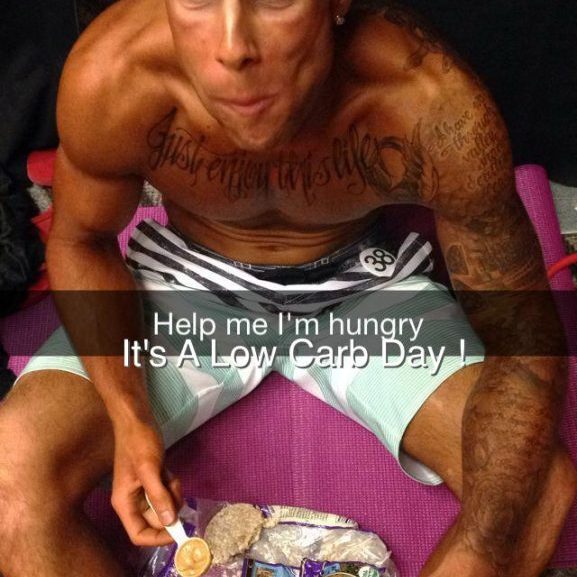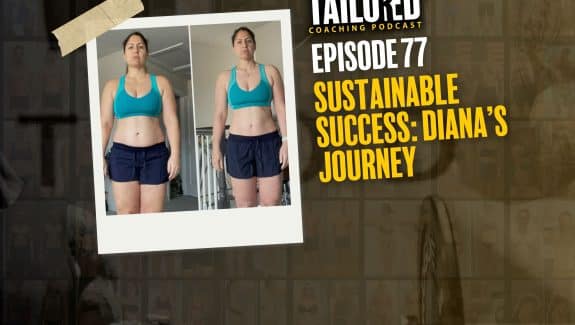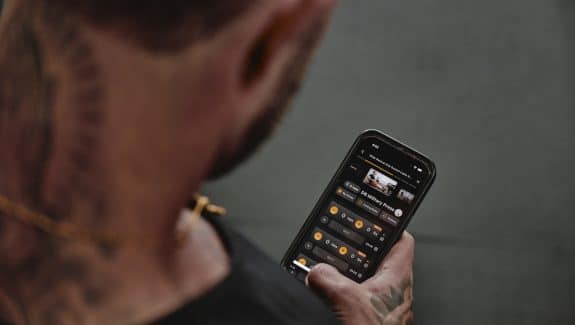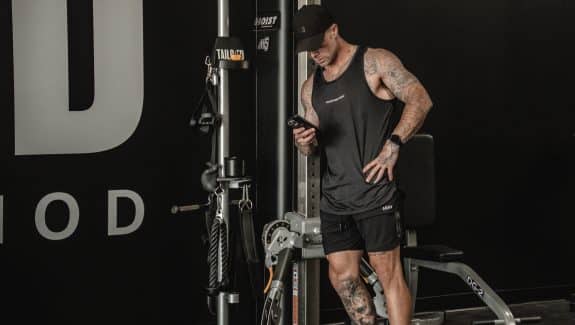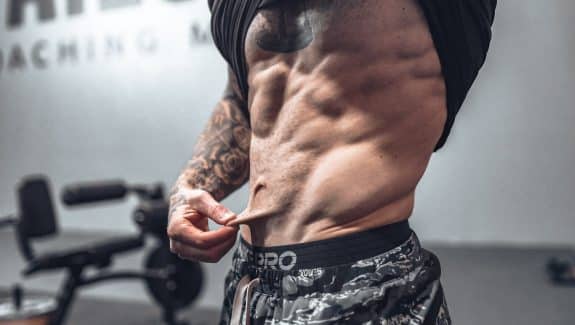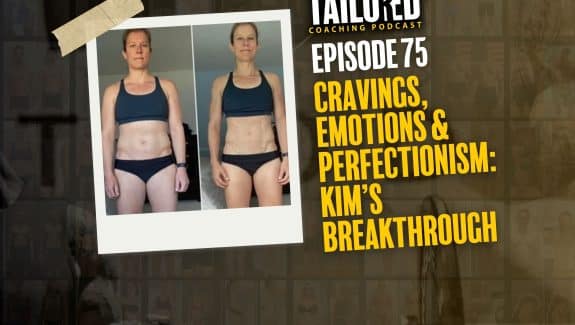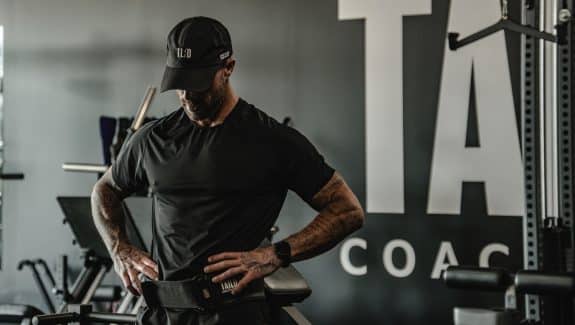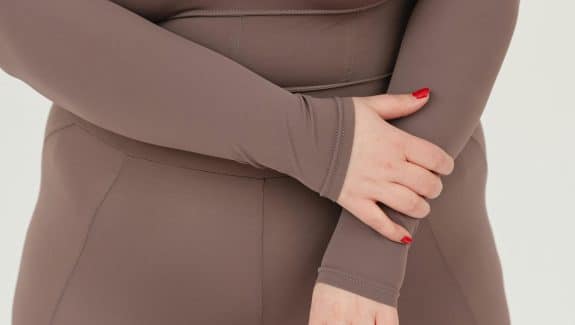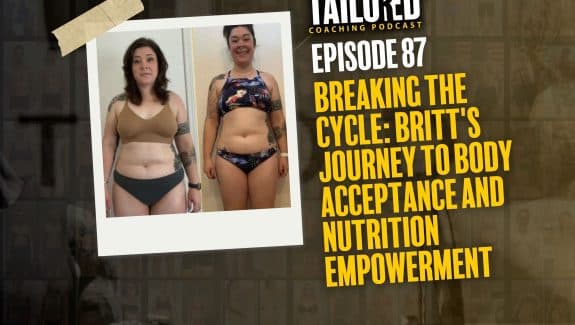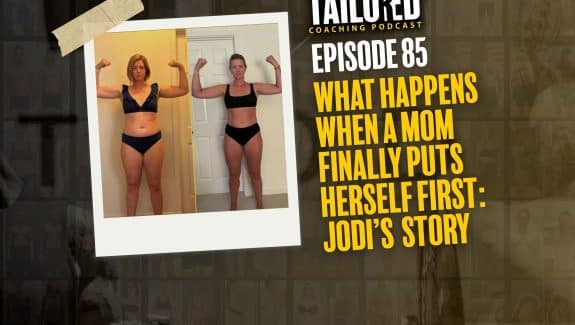
I get a ton of nutrition questions on a daily basis, but the topic that rules the majorities is always Carbohydrates.
Everyone wants to know how to perfect their carb intake and honestly, I don’t blame them! There is so much crap out there on carbs, whether it is for or against them.
So my goal today is to break it down and try to help YOU figure out your carb intake, when YOU should be consuming them, the different ways to cycle/approach carb intake and why you need to even worry about it all in the first place!
Before I can explain everything there is to understand about carbs, you must first create a good base line of dietary habits. What I mean by this is eating the right foods, sticking to good portions, protein and veggies in every meal, etc.
The best way for you to learn exactly how to do this, is to check out my article on the Vigor Ground Fitness & Performance website. You can do so now by clicking the picture below.
Once you’ve locked down your habits and have followed those basic guidelines of eating for long-term results, then you must figure out your caloric intake. This is needed before going into specific carb intakes, most of the time, because you need to portion your carb intake according to your protein and fat intake, when going into a specific diet.
To figure out your specific calorie intake and what calories are really all about, I suggest checking out my second article on the Vigor Ground Fitness & Performance website. [ Not trying to lead you elsewhere constantly, but those articles truly break things down allowing YOU to fully understand this subject and article even better ].
You can do so by clicking the picture below.
Now that you understand the habits needed to become successful in long-term dieting and also where your calories should be sitting at, its time to break down the carb code!
The way I will break down this code is by laying down the top three subjects relating to frequently asked carb questions I get, so lets get started!
-Pre-Workout Carbs?!
This is a good one, should you or should you not eat carbs pre-workout?
In the simplest way I could possibly put it, also my personal opinion and what I’ve personally received results with my clients…
If your goal is fat loss then no, you should save them for post workout windows. But if your goal is muscle gain or strength gains, then yes I believe you should.
My reasoning on this is simple, when trying to burn as much fat as possible it is a better option to use stored energy [ stored glycogen (carbs) and fats ] for your fuel during your workouts. It is simple because your goal is to burn the fat you currently have right? So lets utilize it at the highest possible rate we can, which would be by NOT consuming carbs pre workout.
Now when someone is going for a goal of putting on size and gaining as much strength as possible, it is more important to have as much fuel to enhance performance. Therefore we do want some good carbs about 1-2 hours pre workout. It is also because the typical client looking to put on size or strength doesn’t have much fat to lose in the first place and when you’re very lean your carb tolerance is much better then those who are not as lean. This just makes them able to consume more carbohydrates more frequently, without putting on the extra fat.
A good thing to research when trying to decide is the writings by John Kiefer on Carb Back-Loading. In his research he proves that you can build muscle, strength, size, and also burn much more fat by using this approach.
Now I do agree with him, but I also believe in the science backing up pre-workout carbs. Simply because when you do have very efficient insulin sensitivity, you’re very lean and your goal is to put on size/strength, it has been shown to work! Hell I kept pre workout carbs in my diet leading up to my physique show and got myself down to 5% body fat, that to me is proof on a personal level. On top of all that, I know for a fact I feel much stronger in the gym when I have carbs in my system.
But I will be honest and admit I know many people who feel like crap consuming carbs pre-workout, lean or not. It simply comes down to how your body personally utilizes nutrients in the body for energy. Some feel great on carbs, others it’s going to be high fat and protein.
Verdict: The verdict here is that if your goal is fat loss; keep carbs to the post workout window and stick with a higher fat/protein diet throughout the day and leading up to your workout. Doing this will burn more stored glycogen, creating a leaner body, and you will slowly utilize fat for energy better so eventually you will have plenty energy in the gym without taking in any carbs.
And if your goal is to build strength or size, assess both approaches. Try consuming 25-40g of carbs from a good source like oats, have some good digesting protein like whey, and add a small amount of fat (5-8g) from something easily digestible like almond butter. The protein will help recovery, the carbs will give you energy and the fats will slow the digestion and insulin spike of it all down enough to sustain the energy throughout your workout.
-How many carbs per day should I eat?
To start off on this one I will say this, if you’re brand new to dieting and are still working on the habits then I suggest The Handful Diet I created and using back-loading as well. This pretty much means on workout day you can have a handful of carbs, the good ones, after your workout. This could be up to a cup of rice, a sweet potato, a cup of fruit, slice or two of Ezekiel bread, etc.
If you’re beyond the beginning part of your diet, have established the habits and are ready to track macros then I suggest starting with a lower amount to assess your carb tolerance and then slowly implement more as you go. This will ensure we don’t gain fat in the process of trying to add carbs. It’s always easier and more satisfying this way because we don’t have to back track on our fat loss progress.
So if you’re in that boat, I would start with 20-30% of your diet coming from carbs, the lower percentage being the people with more fat loss to accomplish. That means your protein should be at 40% and your fats should be at about 30-40%.
Now for distributing those carbs, this goes back to the fact that it depends on your goals. If the goal is fat loss save all starchy carbs for post workout, this will be your potatoes, rice’s, etc. Everyone should eat veggies all day with every single meal and these will be included in your carb percentage. And as for fruit, well this one can be tricky. It extreme fat loss is the goal, by which I mean getting VERY VERY lean, I typically recommend saving them as well for the post workout window. But if you’re still new, have a lot of weight/fat to lose, or you aren’t looking to get absolutely shredded, my recommendation is allowing them anytime of the day in a 5:1 ratio of veggies to fruit.
Verdict: My verdict is simple; judge this by your current body type and where you’d like your body type to be going forward. That’s ultimately how you decide how many you should be eating.
If you’re lean, you can have more leeway to eat carbs. If you have more to lose, be sparingly with your carbs and they will be in the post workout window.
-Should I cycle my carbs? [Carb-Cycling approach]
This is surprisingly one of the toughest for me to answer because it depends on so many different factors of the person’s life.
For example, carb cycling works great for getting lean, building muscle and maintaining results long-term. So usually I love it and will often add it into peoples regime.
But I also believe it can be a bit overwhelming to some. For instance, if you have an extremely busy lifestyle that changes your schedule for training and eating on a regular basis, the last thing you want to do is have to switch your nutrient/calorie intake on the spot because of work schedule changing. Now you wont be able to strength train anymore today so you can’t have high carbs… but shit, half your day is done and you’ve already eaten as if you were going to train!!
For these clients I simply go with a daily moderate intake approach. There are no high carb days, but no low carb days either. Its simple, works very well and allows a good energy balance throughout each day. This is something I personally like a lot because your body can adjust to it easily and it is much less stressful because you can easily get accustomed to it.
The other benefit of this is it is easy for me as a coach to adjust things for progression towards a better body-composition. With this approach I don’t need to guess if the high carb day is too high or if the low carb day is too low, all days are equal therefor I just adjust the overall macros.
This also works great if you condition hard and by this I don’t mean you have typical cardio days… I mean hard sprinting, circuit training, strongman circuits, sled pulls, etc. That kind of cardio burns energy, so you earn those carbs. Which is the exact reason I don’t cycle my carbs.
Verdict: My verdict on this is once again; it depends on your goals. If you’re a busy person or get stressed and overwhelmed easily, don’t cycle them. Just keep them at a moderate level, rather then highs and lows.
If you condition hard, rather then walking for cardio, once again do not cycle them. And if you do, maybe lower them by 25-50g TOPS. This is something I do with my athletes or clients who use pre or during workout carbs. I simply take out the pre/during carbs and it lowers their carb intake slightly, allowing them the extra step on staying a bit leaner.
And if you don’t get overwhelmed, like to geek out on your nutrition/fitness routine, or have the time to devote specific diet days to specific workout days and stay consistent with that, then do cycle them. It will give you the upper advantage on being very lean and accomplishing your physique goals.
Overall Opinion On Carbohydrates:
Carbs are not your enemy. They are needed in every single persons diet, simply in specific portions and timings.
Learn to utilize them and they can be the most important nutrient to enhance performance and a better body composition.

